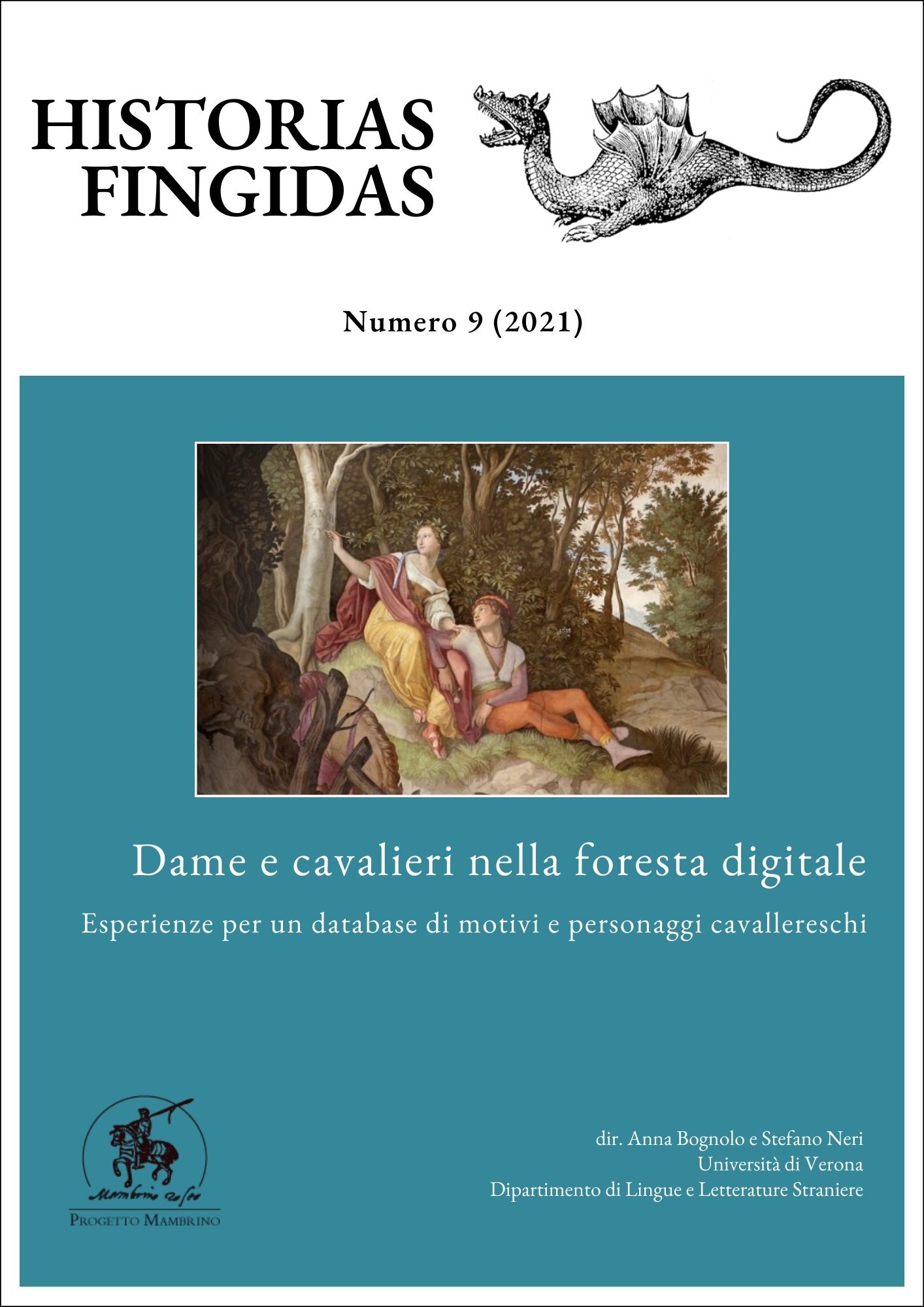For an approach to the modern rewritings (19th-20th centuries) of the Castilian chivalric books and Don Quixote. The AmadíssigloXX portal
DOI:
https://doi.org/10.13136/2284-2667/1094Keywords:
Chivalric books, Don Quixote, rewrites, XIX-XXI centuries, database, AmadíssigloXXAbstract
Spanish chivalric narrative, after the extraordinary literary flowering of the 16th century, experienced a long period of crisis, at least until the threshold of Romanticism, with the rediscovery of the Middle Ages as a literary chronotope. Subsequently, the narrative model of chivalric books was to live other times of renewed fortune both in the civil war and post-war period, in the context of the so-called «Falangist literature», as in contemporary times with authors such as Álvaro Cunqueiro and Juan Perucho. With the Amadíssiglo XX portal, the Roman research group at La Sapienza University intends to create a database of modern rewritings of the chivalric books and Don Quixote. In this article the project will be detailed with the presentation of the criteria for the formation of the corpus and the work carried out.
Downloads
Published
Issue
Section
License
Copyright (c) 2021 Elisabetta Sarmati

This work is licensed under a Creative Commons Attribution-NonCommercial 4.0 International License.
Authors must attend to the following conditions:- Authors will mantain the copyright of their work and leave to the journal first publishing rights, simultaneously licensed by a Creative Common License - Attribution - No Commercial Use that permits other researchers to share the work indicating the intellectual property of the author and the first publishing in this journal not for commercial use.
- Authors can adhere to other license agreements not exclusive to the distribution of the published version of their work (for example: include it in an institutional archive or publish it in a monografic book), with the agreement of indicating that the first publishing belongs to this journal.
- Authors can disseminate their work (for example in institutional repositories or their personal website) before and during the submission procedure, as it can lead to advantageous exchanges and citations of the work (see also, The Effect of Open Access).

